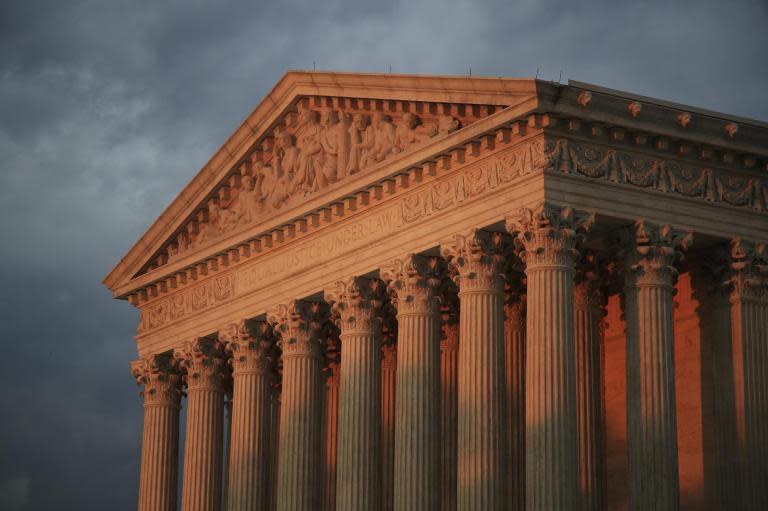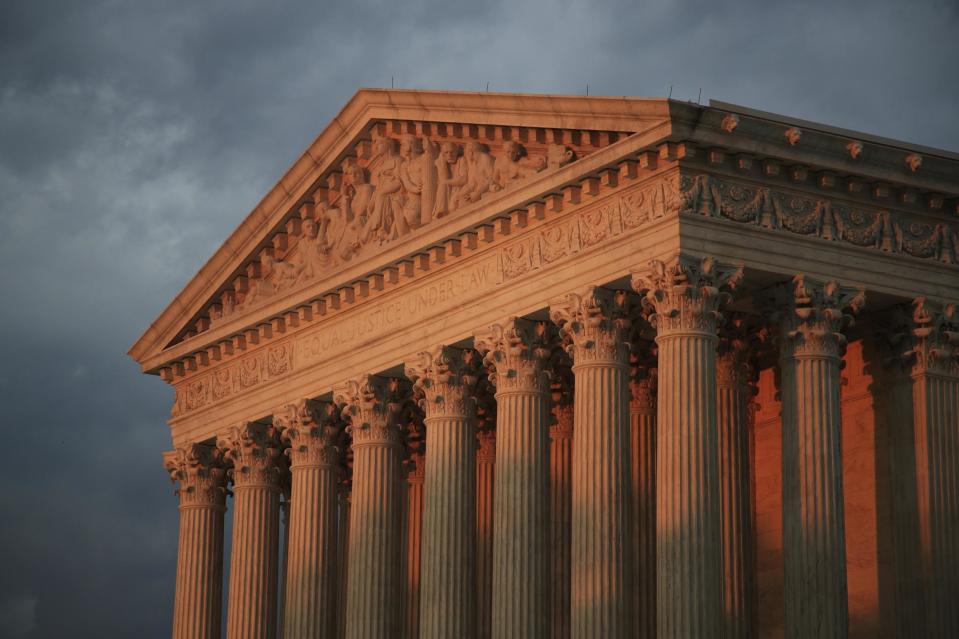US Supreme Court to decide if it's legal to fire people for being gay
The Supreme Court has agreed to hear arguments over a slate of cases that could effectively determine whether US employers have the right to fire someone for being LGBTQ+.
The nation’s highest court said Monday it would hear legal arguments for Altitude Express Inc v Zarda, Bostock v Clayton County and RG & GR Harris Funeral Homes v EEOC — all three of which deal with various forms of alleged employment discrimination.
The Harris Funeral Homes case involves accusations of anti-transgender discrimination. An appeals court presiding over the case previously wrote “it is analytically impossible to fire an employee based on that employee’s status as a transgender person without being motivated, at least in part, by the employee’s sex”.
Under Donald Trump, the department of justice has sent attorneys to argue in the Second Circuit Court of Appeals in the case of Altitude Express Inc v Zarda to defend the firing of Donald Zarda due to his sexuality.
Justice department attorneys have reversed course as part of the current administration to essentially argue that LGBTQ+ employees are not protected under Title VII of the Civil Rights Act of 1964.
However, legal experts say the firings in all three cases violate the legislation, which defends against employment discrimination based on “sex”.
Whereas former Justice Anthony Kennedy occasionally joined the Supreme Court’s liberal justices on issues of gay rights, his replacement is far more conservative in cases involving those questions.
Justice Brett Kavanaugh, appointed by Mr Trump last year, is a doctrinaire conservative who is far less likely to “have much sympathy for LGBTQ plaintiffs,” wrote Ian Millhiser, a columnist for ThinkProgress and author of Injustices: The Supreme Court’s History of Comforting the Comfortable and Afflicting the Afflicted.
“If the Supreme Court follows the law in Zarda, Bostock, and Harris Funeral Homes, they will rule in favour of the plaintiffs in a 9-0 decision,” he writes. “That outcome, however, is unlikely.”
The Seventh Circuit Court of Appeals has previously affirmed under Mr Trump that Title VII protects from discrimination against sexual orientation, stating in a decision that any other interpretation would be “confusing and contradictory.”


